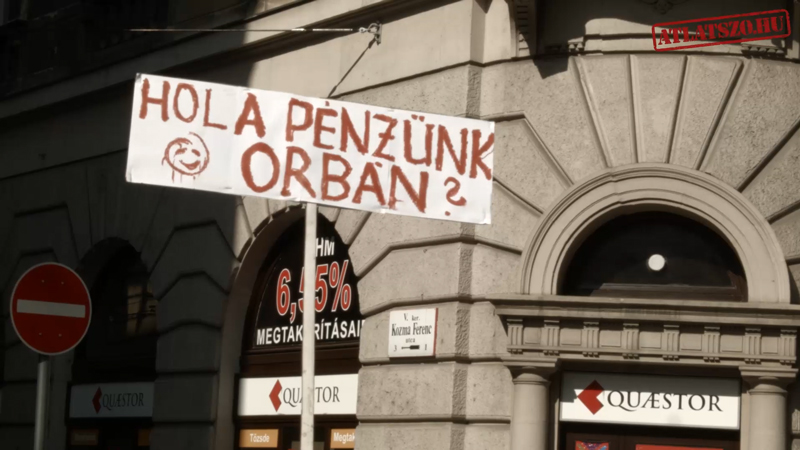The https://english.atlatszo.hu use cookies to track and profile customers such as action tags and pixel tracking on our website to assist our marketing. On our website we use technical, analytical, marketing and preference cookies. These are necessary for our site to work properly and to give us inforamation about how our site is used. See Cookies Policy
In pursuit of public money managed by shady brokers
Many people are still desperately waiting to recover some of the money they invested at broker firms, which have recently been discovered as frauds that were operating criminally for decades. Strangely enough, government agencies also chose these companies with dubious reputations. Atlatszo.hu looked into how much of the public’s money the government gambled with.
This year saw the exposure of the biggest financial scam in the history of modern Hungary, when the market regulator identified a number of investment firms that have been operating in breach of the law for decades. Investigators discovered that Buda-Cash, one of the biggest brokerages has been tampering with the records submitted to the authorities and operated what was essentially a pyramid scheme. The market-wide review that followed also discovered that a company belonging to the well-known Quaestor brand was selling junk bonds with the promise of gains well above market averages.

The damages are extensive, but more interestingly, the companies involved were only until recently business partners of the state and conducted investment for a number of government agencies. In the wake of the events the government made a tally and found that some HUF 260 billion (€850 million) from a number of municipalities and state agencies was handled at brokerages.
When we looked into the details we found several irregularities and curious provisions.
One of the biggest players to have a Quaestor account is the Ministry of Foreign Affairs and Trade. When asked why a ministry would keep public funds with such a risky operator, the answer was that Quaestor offered very favorable terms. True, the ministry got what seems to be a tailor-made deal in which it didn’t have to pay anything for the maintenance of the account. However, it also didn’t have any reason to commission the management of public funds to a private sector player when these duties should be supervised by the treasury.
Exactly what the government did and did not know is also a crucial aspect. The official version is that the prime minister ordered all state money to be taken out of investment firms in the aftermath of the Buda-Cash collapse hereby playing a major role in the ensuing sequence of events and company collapses. However, the timelines don’t add up. A number of reports and contradicting statements from government officials show that the government was in all likeliness tipped off, which is why it took out the money. If that is true, it would mean that people in government had access to insider information and used it only to save their own investment rather than warning the public, who are now looking to the investor protection fund to compensate them.
The Quaestor story is all the more problematic, since the latest reports revealed that there was already an investigation of foul play against the company as early as 2011 in regard to the construction of the Győr football stadium, which Quaestor owns. Accordingly, the state should at least have been aware that the company it is looking the deal with doesn’t play fully legitimately.

